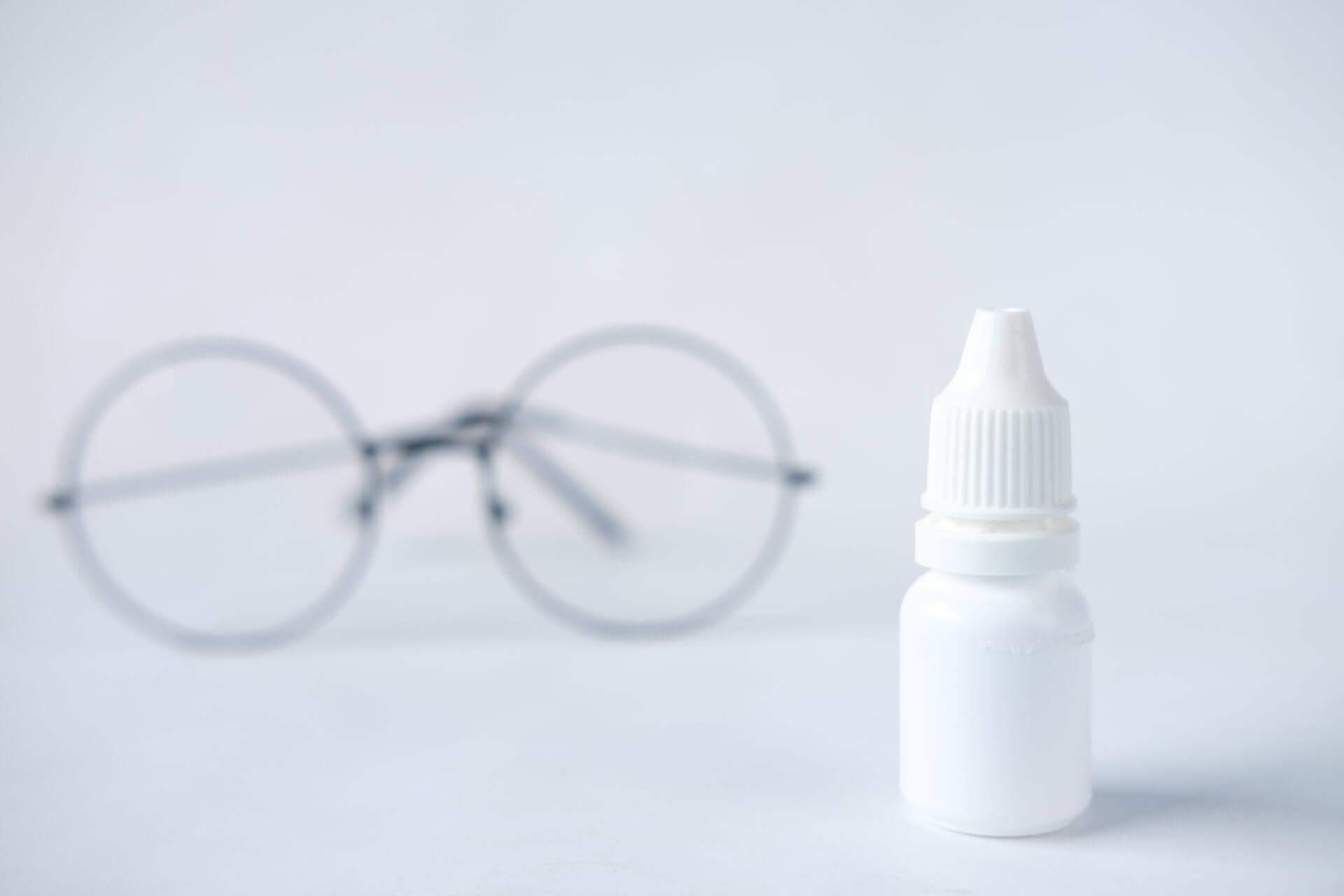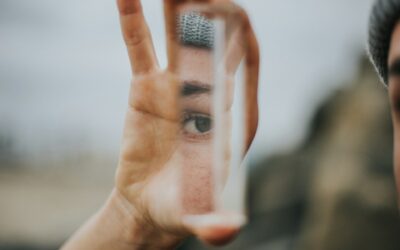New to the presbyopia treatment scene is an eye drop called Vuity. You may have seen commercials for it as it is sweeping the nation as a new option for improving reading vision in presbyopes.
Vuity is an eyedrop produced by Allergan, one of the leaders in ocular medications, and was FDA approved for patient use as of October 2021.
But what exactly is Vuity? Or better yet, what is presbyopia and why does it require treatment?
What is Presbyopia?
Presbyopia is an unfortunate part of the natural aging process, meaning it will occur to literally everyone.
There is currently no “cure” for presbyopia, but there are several options for treatments to make presbyopia less annoying.
Within our eyes is a structure called the crystalline lens.
The lens is a clear, flexible structure. Flexing of the lens creates more power, which allows us to view objects up close clearly.
When we are younger, the lens has the ability to flex 15-20 diopters of power in a process called accommodation. However, as we have more birthdays, the lens loses its flexibility and that number begins to drop until reaching approximately 0 around the age of 65.
Individuals become symptomatic of presbyopia when the accommodative system reaches 4-5 diopters, which occurs around the age of 45. At this point, the lens is still able to flex to be able to see up close, but it becomes uncomfortable and ill-sustained.
As a result, individuals turn to eye doctors for help so that they can once again see clearly up close.
Current treatment options for presbyopia include over-the-counter reading glasses (cheaters), prescription bifocals, trifocals, or progressive glasses lenses, multifocal contact lenses, and now, the eyedrop Vuity.
What are Vuity Eye Drops?
Vuity is an eyedrop consisting of 1.25% pilocarpine HCl solution.
Pilocarpine is a drug that has been used since the early 1900s for treatment of glaucoma and acute angle closures.
It works to accomplish this by opening the drainage system of the eye, specifically the trabecular meshwork, to increase outflow of the fluid that fills the eye (aqueous humor).
Secondarily, pilocarpine constricts the pupil of the eye, which is how pilocarpine helps improve reading vision.
When the pupil of the eye constricts (or becomes smaller), it increases an individual’s depth of focus. This means the range in which images remain clear expands.
More specifically, in trials between 26-31% of individuals who tried Vuity eyedrops gained 3 lines of near acuity without compromising more than 1 line of distance vision.
To put this into perspective, we’ll use an example patient, Jackie. Jackie is a 46 year old woman, who is beginning to have a hard time viewing objects at near.
During her examination, it was revealed that Jackie had 20/20 vision at distance, and 20/50 vision at near. After instilling Vuity eyedrops, Jackie’s near vision improved to 20/25 and her distance vision remained pretty good at 20/25 as well.
For Jackie, reading glasses may still be useful for reading for extended periods of time, but generally speaking she can now see well both at distance and far away without need for glasses!
Now let’s look at a patient whose a little deeper into presbyopia—a 60 year old male named James.
When James presented to his doctor’s office his distance vision was 20/20 and his near vision was 20/70.
After instilling Vuity eyedrops to each eye, his distance vision decreased to 20/25, but his near vision improved to 20/40—or newspaper print sized.
Results for James might not be as great as Jackie’s results, but he can still see well at distance, and fairly well at near. Reading glasses will be needed for reading a book or some hobbies, but James could now go to a restaurant or the grocery store and get by without need of reading glasses.
Frequently Asked Questions
What is the dosing schedule for Vuity?
Vuity eyedrop dosing is 1 drop into each eye once daily. It takes roughly 1-2 hours for the drops to reach maximum effect and will remain effective for the remainder of the day.
How much does Vuity Cost?
Right now Vuity is not covered by most insurances. On average, a 1 month supply costs roughly $85.00.
Where can I purchase Vuity?
Vuity is a prescription medication and therefore cannot currently be purchased over-the-counter. It is available through most pharmacies with prescription.
Are there any side effects of Vuity?
The most commonly reported side effects of Vuity eyedrops is eye redness and headache. Other, less commonly reported, side effects include sweating, muscle tremors, nausea, vomiting, diarrhea, watering of the mouth, trouble breathing, blurred distance vision, poor vision in dimly lit conditions, and eye irritation upon instillation.
Should I try Vuity?
If you, or someone you know, is interested in trying Vuity eyedrops, make an appointment with your local eye doctor today! Your doctor will be able to closely examine your eyes and determine if you are a candidate for Vuity eye drops as well as answer any additional questions you may have.
While Vuity eyedrops may not be the presbyopia solution for everyone, it could be an effective treatment for you. The only way to find out is to give it a try today!





